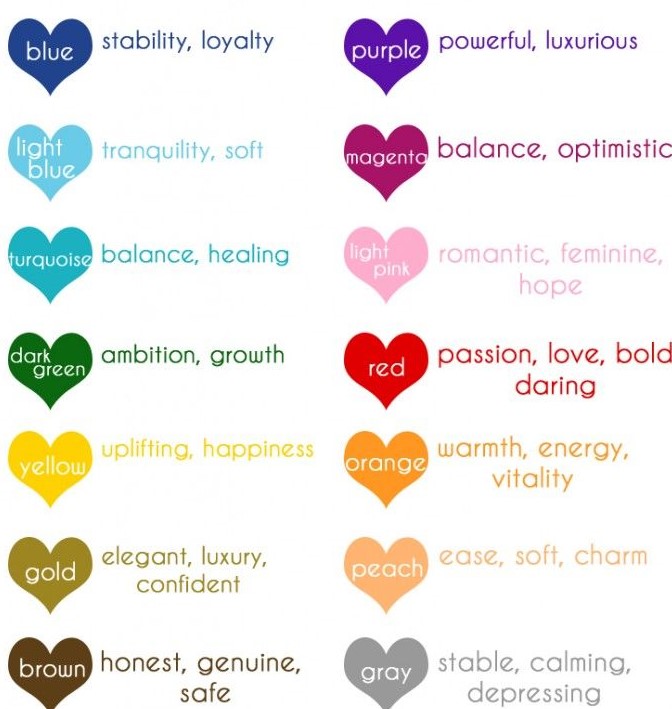The heart is not only a vital organ in our bodies but also a powerful symbol in various cultures and contexts. Understanding the different heart color meanings can provide insight into emotions, relationships, and even personal identity. In this article, we will explore the significance of different heart colors and what they represent in various aspects of life.
Colors have always held a special place in human culture, often associated with specific feelings, thoughts, and actions. From the classic red heart symbolizing love to the blue heart representing tranquility, each color evokes different emotions and meanings. By examining these heart colors, we can gain a deeper understanding of our own feelings and those of others.
This exploration of heart color meanings is not just a whimsical endeavor; it also has psychological and social implications. Whether you are looking to express love, friendship, or sadness, knowing the meaning behind these colors can enhance your communication and connections with others. Let’s dive into the fascinating world of heart colors and what they signify!
Table of Contents
- 1. The Meaning of the Red Heart
- 2. The Meaning of the Blue Heart
- 3. The Meaning of the Green Heart
- 4. The Meaning of the Yellow Heart
- 5. The Meaning of the Purple Heart
- 6. The Meaning of the Black Heart
- 7. The Meaning of the White Heart
- 8. The Meaning of the Pink Heart
1. The Meaning of the Red Heart
The red heart is perhaps the most recognized symbol of love and passion. It represents deep emotions, romance, and affection. A red heart often signifies:
- Romantic love
- Desire and passion
- Strong emotional bonds
In psychology, the color red is associated with strong emotions due to its ability to increase heart rate and adrenaline levels. This makes it a powerful symbol for those in love or experiencing intense feelings.
2. The Meaning of the Blue Heart
The blue heart conveys a sense of calmness and tranquility. It is often associated with stability and peace. The meanings behind the blue heart include:
- Trust and loyalty
- Peacefulness and serenity
- Sadness or melancholy
The blue heart can also be used to express feelings of sadness or depression, making it a dual-symbolic color. It reminds us that while we may feel down, there is always the possibility of finding peace.
3. The Meaning of the Green Heart
The green heart symbolizes nature, growth, and harmony. It represents feelings of renewal and healing. Key aspects of the green heart include:
- Growth and rebirth
- Health and well-being
- Balance and harmony
In relationships, the green heart can signify a healthy partnership that fosters growth and understanding.
4. The Meaning of the Yellow Heart
The yellow heart is a symbol of happiness, optimism, and friendship. It radiates warmth and positivity. The meanings include:
- Joy and happiness
- Friendship and camaraderie
- Cheerfulness
This heart color is often used to convey cheerful sentiments, making it an ideal symbol for platonic relationships and positive experiences.
5. The Meaning of the Purple Heart
The purple heart signifies luxury, power, and ambition. It is often associated with creativity and spirituality. Key meanings include:
- Royalty and nobility
- Spirituality and intuition
- Creativity and inspiration
This color can be used to express a deeper connection to one's self or a higher purpose.
6. The Meaning of the Black Heart
While the black heart is often seen as negative, it can have multiple interpretations. It can signify:
- Sadness and mourning
- Rebellion and defiance
- Dark humor or sarcasm
This heart color is frequently used in a more ironic or edgy context, representing a complex emotional state.
7. The Meaning of the White Heart
The white heart symbolizes purity, innocence, and new beginnings. It represents:
- Purity of heart
- Fresh starts and new relationships
- Peace and tranquility
In many cultures, the white heart is associated with spiritual growth and enlightenment.
8. The Meaning of the Pink Heart
The pink heart is a softer version of the red heart, symbolizing love and affection without the intensity of passion. Key meanings include:
- Affection and caring
- Romantic love in a gentle form
- Compassion and kindness
This heart color is often used in communication to express tenderness and sweetness in relationships.
Conclusion
Understanding the different heart color meanings allows us to express and interpret emotions more effectively. Each color carries its own unique significance, helping us navigate the complexities of human relationships. Whether you choose to use these symbols in personal communication or artistic expression, being aware of their meanings can enhance your connections with others.
We encourage you to share your thoughts on heart color meanings in the comments below or explore more articles on our website to deepen your understanding of this fascinating topic!
Closing Thoughts
We hope this exploration of heart color meanings has provided you with valuable insights. Remember that colors can convey powerful messages and emotions. We invite you to return to our site for more information and discussions on topics that matter to you.



